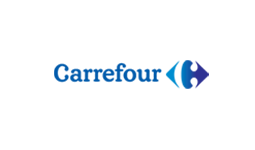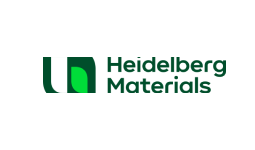 Is Your Company Ready for E-invoicing in Serbia?Prepare your company for e-invoicing changes in Serbia and find out
Is Your Company Ready for E-invoicing in Serbia?Prepare your company for e-invoicing changes in Serbia and find out
how Comarch e-Invoicing can help.

Mandatory e-invoicing for B2B has been introduced in Serbia since January 1, 2023. In addition since the same time, taxpayers have an additional obligation to report VAT to the Serbian tax authorities via the national e-invoicing system ("SEF"). The new obligation applies only to those taxpayers who are obliged to: calculate VAT on the supply of goods or services and pay it to the tax authority, and are not obliged to document these transactions with an invoice (e.g. delivery to natural persons) or such an invoice will not be issued in SEF (e.g. a service taxed in Serbia and performed for foreign entities) due to the lack of access to such a system.


Electronic invoice is defined as issued and received in accordance with Serbian e-invoicing standards and to be considered a credible document it has to be processed by national e-invoicing system (platform SEF). The Sistem eFaktura (SEF) platform is used in both areas, i.e., B2B and B2G.
Invoices to the tax authorities can be sent in two different ways:
One of the conditions to become an Information Intermediary is having a company registered in Serbia. The Register of Information Intermediaries is kept by the Central Information Intermediary.
Serbian electronic invoicing standard is based on the European electronic invoicing standard (SRBEFN) but Peppol BIS 3.0 is also allowed.
An electronic invoice issued or received by a public sector entity is permanently stored in the electronic invoice system. An electronic invoice issued and received by a private sector entity must be kept for 10 years from the end of the year in which the electronic invoice was issued.
The authenticity of the origin and the integrity of the content of the electronic invoice is ensured by issuing it in the format prescribed by Serbian Law, as well as by keeping the document in a format suitable for electronic storage.

We have 20+ years of experience in carrying out various EDI, e-invoicing, and other document exchange projects around the world. In those years, we have successfully connected more than 130,000 entities from over 60 countries.
Full compliance with the latest data exchange regulations and modern data transfer standards
Applying new technologies and IT solutions in order to streamline workflows and automate activities and procedures
Tailor-made solutions based on processes specific to each company – own road map and a suitable pace of changes
Highest level of security for all sensitive and important company data
If your company is based or has branches in Serbia, you need to prepare your billing and tax systems to comply with the new requirements. Click on the button below to get in touch with one of our experts.

























Since May 1st 2022, private sector entities have had the obligation to issue e-invoices to public sector entities, while public sector entities have had the obligation to receive and keep such invoices, and to issue e-invoices to other public sector entities (B2G, G2G).
Just two months later, on July 1st 2022, public sector entities began being required to issue e-invoices to private sector entities. Since the same date, private sector entities have been required to receive and store e-invoices from both (G2B).
The whole implementation entered into force on January 1st 2023, when the provisions of the law related to the obligation to issue and keep e-invoices in transactions in the economy began in business-to-business relations (B2B).
The Sistem eFaktura (SEF) platform will be used in both areas, i.e., B2B and B2G.
An electronic invoice issued or received by a public sector entity is permanently stored in the electronic invoice system.
An electronic invoice issued and received by a private sector entity shall be kept for 10 years from the end of the year in which the electronic invoice was issued.
Since May 1st 2022, private sector entities have been obliged to issue e-invoices to public sector entities, while public sector entities have had the obligation to receive and keep such invoices, and to issue e-invoices to other public sector entities (B2G, G2G).
Just two months later, on July 1st 2022, public sector entities began to be required to issue e-invoices to private sector entities. From the same date, private sector entities were required to receive and store e-invoices from both (G2B).
The whole implementation is entered into forace on January 1st 2023, when the provisions of the law related to the obligation to issue and keep e-invoices in transactions in the economy began in business to business relations (B2B).
It’s a national platform used by Serbian government in order to manage the exchange of electronic invoices.
The valid invoice format in Serbia is XML.

Make sure your business meets international standards with the Comarch e-Invoicing platform, trusted in more than 60 countries. Enjoy hassle-free integration and continuous compliance updates.